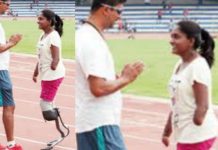Detailed Current Affairs 12th July 2016 for UPSC
Dear Sehpaathians
We are here with Detailed Current affairs of the morning including all the top headlines of the day. These current affairs are very important for the upcoming UPSC / SSC exams.
Kendrapada sheep gets rare status
A threatened breed of sheep found only in coastal Jagatsinghpur and Kendrapara districts of Odisha has been conferred ‘rare and singular species’ tag by the central government.
The National Bureau of Animal Genetic Resources (NBAGR) has accorded genetic recognition to the breed of sheep, locally called ‘kuji mendha’.
It’s a typical breed of sheep. These sheep are fast breeders giving multiple birth while those in other parts of the state give single birth at a time.
Researchers of Fisheries and Animal Resources Development (FARD) Department, Odisha Livestock Resources Development Society and College of Veterinary Science and Animal Husbandry had earlier conducted scientific study on this rare breed and had found the sheep to be carrying a rare gene mutation.
The sheep that are reared in this part are delicate domestic animals. Sheep in other parts of Odisha are not known for giving multiple births. This characteristic makes them distinctive from other species.
India, Kenya to deepen security ties
India and Kenya have signed seven pacts. These pacts were signed during Prime Minister Narendra Modi’s ongoing visit to the country.
Details:
MoUs signed between the two nations include:
- MoU on Defence Cooperation.
- MoU on Cooperation in the field of National Housing Policy Development and Management.
- MoU between Bureau of Indian Standards and Kenya Bureau of Standards.
- Agreement on Exemption of Visa for holders of Diplomatic Passports.
- Agreement for the Avoidance of Double Taxation and the Prevention of Fiscal Evasion with Respect to Taxes on Income.
- Line of Credit Agreement for US$ 15 million to IDB Capital Limited, for development of small and medium enterprises [SMEs].
- Line of Credit Agreement for US$ 29.95 million to the Government of Kenya for upgrade of Rift Valley Textiles Factory (RIVATEX).
300 Indians stranded in Juba as civil war reignites
Reignited civil war in Juba has left at least 300 Indians stranded. Juba is the capital of South Sudan. Fleeing the fight between the heavily armed rival factions divided on ethnic lines, Indians have taken refuge at various locations, including the Embassy of India.
- Law and order has broken down in the country. Even the U.N. peacekeeping contingent was busy defending its bases.
Background:
South Sudan gained independence from Sudan in July 2011, but the hard-won celebration was short-lived. The Sudan People’s Liberation Movement, the ruling political party that originally led the way for independence, is now divided and fighting for power.
Recent crisis:
In December 2013, political infighting erupted into violence in the streets of the capital, Juba, after South Sudan’s president accused his vice president of an attempted coup. Violence spread across the young nation like wildfire, displacing 413,000 civilians in just the first month of conflict. Tens of thousands of civilians rushed to seek refuge in U.N. bases that were subsequently turned into makeshift displacement camps. The fighting has continued, becoming increasingly brutal and affecting nearly the entire country.
What’s going on now?
A handful of peace agreements have been signed over the course of the war — the most recent in August 2015 — but they have been repeatedly violated. The situation remains highly unstable. While some regions have recently become slightly less volatile, allowing people to move around fairly freely and return to their homes, violent outbreaks are still occurring throughout the country.
Roots of Khasis
Pre-historic megaliths and tools discovered in Meghalaya’s Ri-Bhoi district indicate that the Khasi tribe had made the State their home since around 1200 BCE.
- These facts are revealed by Excavations carried out near Lummawbuh village in the northern slopes of Sohpetbneng (Heaven’s Naval) peak near the NH-40.
- Archealogists have found megalithic structures, and iron implements that date back to the prehistoric period in the ridge spreading over 1.5 k.m.
Key facts:
- The Khasi people are an indigenous tribe, the majority of whom live in the State of Meghalaya, with a significant population in the border areas of the neighbouring state of Assam, and in certain parts of Bangladesh.
- They call themselves Ki Khun U Hynñiewtrep, which means “The Children of The Seven Huts” in their language.
- Their language, also called Khasi, is categorized as the northernmost language under the Austroasiatic family stock. The Khasi language was essentially oral until the arrival of Christian missionaries.
- The Khasi people form the majority of the population of the eastern part of Meghalaya, and is the state’s largest community.
- Though the majority of the 85% Khasi populace have embraced Christianity, a substantial minority of the Khasi people still follow and practice their age old indigenous religion, which is known as “Ka Niam Khasi”.
- The Khasi people designed and built the famous living root bridges of the Cherrapunjee region.
- Under the Constitution of India, the Khasis have been granted the status of Scheduled Tribe.
- A unique feature of the Khasi people is that they follow the matrilineal system of descent and inheritance.



















